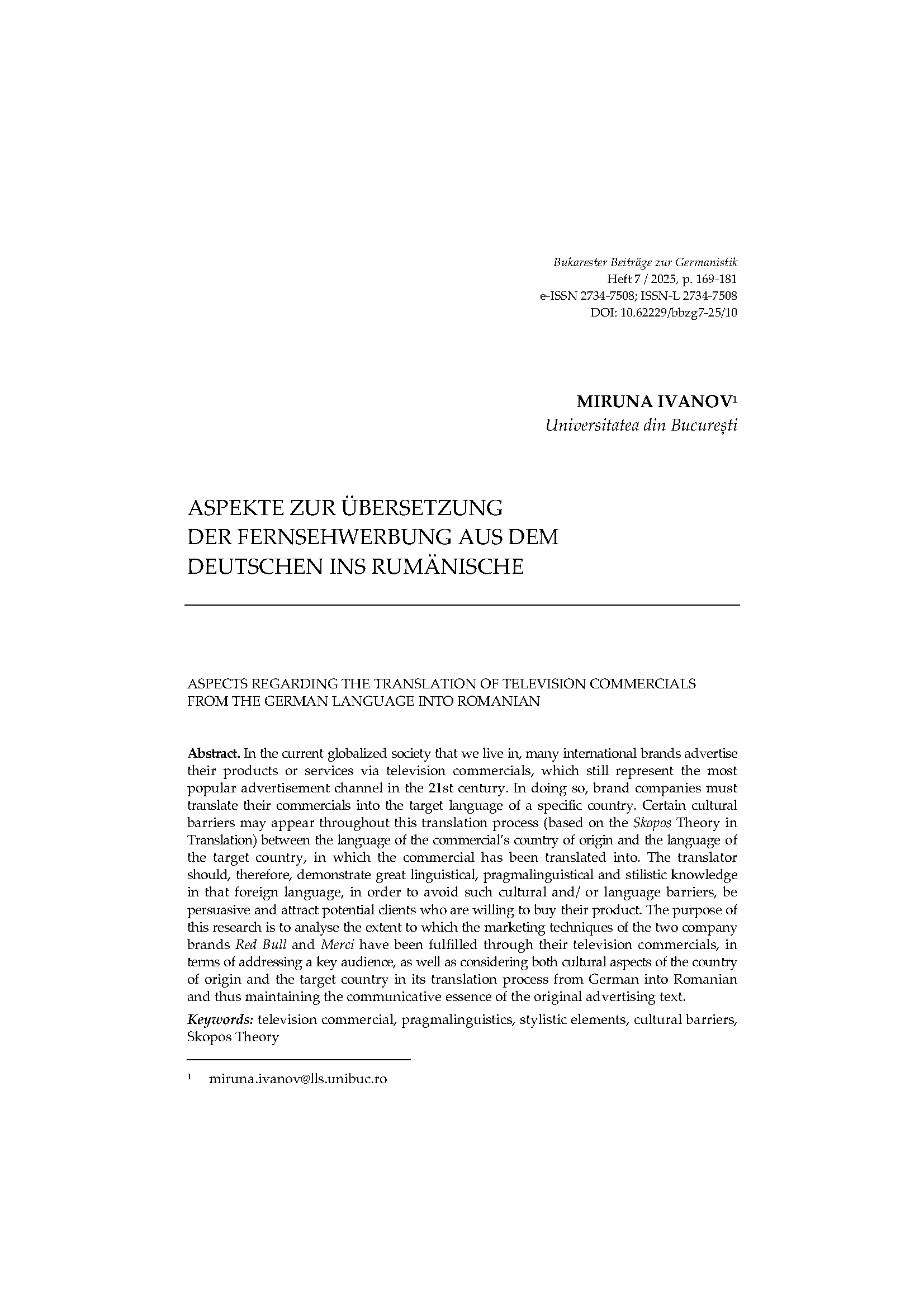ASPEKTE ZUR ÜBERSETZUNG DER FERNSEHWERBUNG AUS DEM DEUTSCHEN INS RUMÄNISCHE
DOI:
https://doi.org/10.62229/bbzg7-25/10Keywords:
television commercial, pragmalinguistics, stylistic elements, cultural barriers, Skopos TheoryAbstract
In the current globalized society that we live in, many international brands advertise their products or services via television commercials, which still represent the most popular advertisement channel in the 21st century. In doing so, brand companies must
translate their commercials into the target language of a specific country. Certain cultural barriers may appear throughout this translation process (based on the Skopos Theory in Translation) between the language of the commercial’s country of origin and the language of the target country, in which the commercial has been translated into. The translator should, therefore, demonstrate great linguistical, pragmalinguistical and stilistic knowledge in that foreign language, in order to avoid such cultural and/ or language barriers, be persuasive and attract potential clients who are willing to buy their product. The purpose of this research is to analyse the extent to which the marketing techniques of the two company brands Red Bull and Merci have been fulfilled through their television commercials, in terms of addressing a key audience, as well as considering both cultural aspects of the country of origin and the target country in its translation process from German into Romanian and thus maintaining the communicative essence of the original advertising text.





